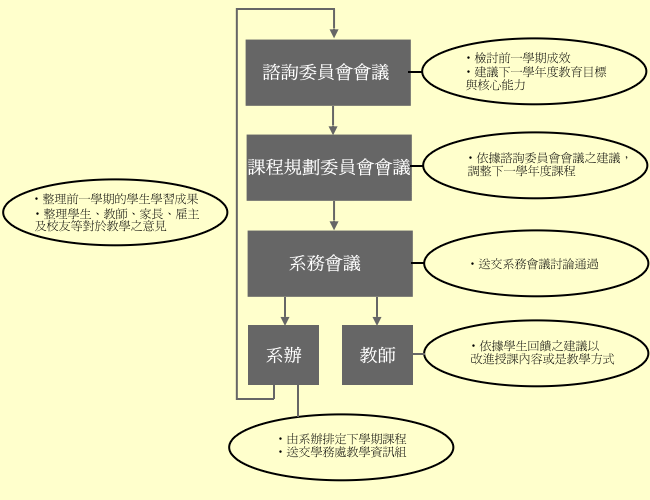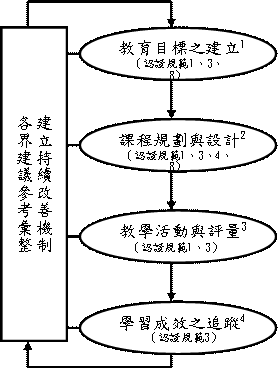Educational objectives and core skills
Educational objectives (bachelor)
Educational objectives
- Basic professional knowledge and life-learning ability
- Solve computer information problems based on professional knowledge
- Great team work ability
Core skills
- Basic mathematics and computer information theory
- Information theory inferrer and experiment design、data analysis
- Keep interesting in learning
- Think independently and innovationally、analyze and solve problems
- Computer information system design、test and verification
- Computer information system integration
- Humane technology accomplishment and computer science and information engineering ethics
- Good communication skill and global view
- Responsible attitude and efficient team cooperation
Educational objectives (master)
Educational objectives
- Basic professional knowledge and life-learning ability
- Independent research、design and innovation
- Excellent team work ability and global view
Core skills
- Professional computer information theory knowledge
- Professional computer information theory inferrer、experiment design and data analysis
- Professional presentation and paper writing
- Discover problems、experiment plan and solve problems independently in computer information
- Computer information system design verification and implementation integration
- Creative thinking in computer information
- Humane technology accomplishment and computer science 、 information engineering ethics and life-learning ability
- English communication skill and global view
- Good communication skill and team cooperation
Course design
This department is established to train students about computer science and information engineering. As a result, the course is designed according to following principles:
- Theory complemented with implementation
- Computer science and information technology and its application
- Emphasize on implementation and laboratory work
| There are 12 implementations topics in our department: | |
|
|

Course development and features
For fresh students, we provide courses which introduces the basic theory of computer science and information engineering(e.g. basic program design and computer organization). Besides, we also have general education (e.g. Mandarin and history) and basic mathematics course (e.g. calculus、Linear Algebra and general physics). With basic knowledge in computer science and information engineering, students can choose diverse extended mathematics courses and computer information technology application courses in our department:
-
Computer science related mathematics courses (e.g. discrete mathematics、engineering mathematics and probability and statistics)
-
We divide engineering into software and hardware. Software courses include programming language、algorithm and data structure. Hardware include digital system and computer organization and application
-
Despite the basic and extended courses, professors in our department will teach application courses about their research fields (e.g. computer graphics and game design, artificial intelligence and wireless communication). It aids to train students to implement their basic knowledge in computer science and solve the problems. To make sure that every student is equipped with computer science knowledge and great programming language skill, every graduate student needs to come up with a project which is related to computer science and information engineering.
Course map
Link
Teaching activities and evaluation system
With the help of questionnaire survey, we can evaluate the learning result of students and adjust the directions of course development. The grades that students get in the courses are also taken into consideration to know whether the exams and homework are too difficult or not. In this way, we can make sure that students can keep up with course schedule and learn professional knowledge we expect.
Learning result track
Professor evaluation
In Cheng Kung University we have a self-evaluation for professors to review whether their courses design is appropriate or not and adjust their directions to improve learning effect
Students learning result statics and review
We also have a questionnaire for students to evaluate whether the course contents meet their expectation or not. Students can convey their learning statics and opinions on the course contents through the questionnaire in an anonymous way. This helps professors change their teaching directions to a way which students can learn more efficiently.











